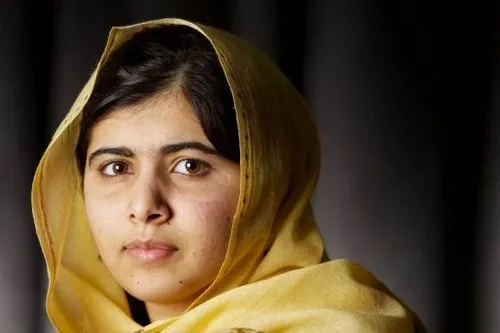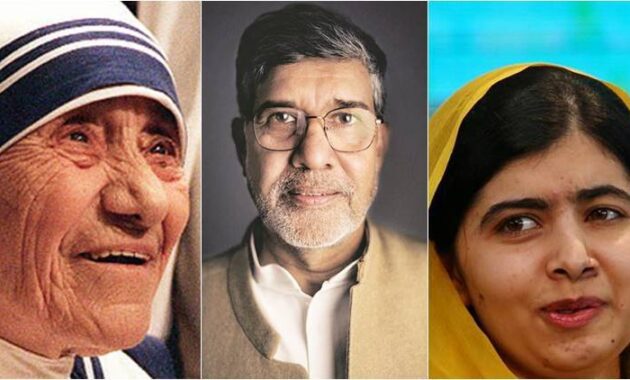
Introduction
The Youngest Nobel Laureates Prize is one of the most prestigious awards in the world, and the youngest recipients of this award are a testament to the power of ambition and hard work. Here, we present a list of the 10 youngest Nobel Laureates of all time, all of whom achieved this incredible feat before the age of 30. From Malala Yousafzai, the youngest Nobel Laureate ever, to Lawrence Bragg, the first Nobel Laureate to be awarded the Nobel Prize in Physics, these inspiring individuals have achieved greatness in their respective fields. Read on to learn more about their remarkable stories and accomplishments.
Exploring the Accomplishments of the 10 Youngest Nobel Laureates of All Time
The Nobel Prize is one of the most prestigious awards in the world, and its recipients are among the most accomplished individuals in their respective fields. Every year, the Nobel Prize committee recognizes outstanding achievements in a variety of disciplines, from physics and chemistry to economics and literature. Over the years, many young people have been honored with the Nobel Prize, including some of the youngest laureates of all time.

Malala Yousafzai
The youngest Nobel Laureate ever was Malala Yousafzai, who was just 17 years old when she received the Nobel Peace Prize in 2014. Malala was recognized for her activism in promoting education for girls in her native Pakistan, and her work has inspired millions of people around the world.
Sir Lawrence Bragg
The second youngest Nobel Laureate was Sir Lawrence Bragg, who was 25 years old when he received the Nobel Prize in Physics in 1915. Bragg was recognized for his pioneering work in X-ray crystallography, which allowed scientists to study the structure of molecules. His work laid the foundation for the development of modern molecular biology.
Frederick Sanger
Another notable young Nobel Laureate was Frederick Sanger, who was 33 years old when he received the Nobel Prize in Chemistry in 1958. Sanger was recognized for his work in determining the structure of proteins and nucleic acids, which laid the groundwork for the development of modern biochemistry.
John F. Nash Jr.
The fourth youngest Nobel Laureate was John F. Nash Jr., who was 40 years old when he received the Nobel Prize in Economics in 1994. Nash was recognized for his groundbreaking work in game theory, which revolutionized the field of economics and has been used to analyze a wide range of economic and social phenomena.
Roger Tsien
The fifth youngest Nobel Laureate was Roger Tsien, who was 48 years old when he received the Nobel Prize in Chemistry in 2008. Tsien was recognized for his work in developing fluorescent proteins, which have revolutionized the field of cell biology and allowed scientists to study the inner workings of cells in unprecedented detail.
Mario Molina
The sixth youngest Nobel Laureate was Mario Molina, who was 51 years old when he received the Nobel Prize in Chemistry in 1995. Molina was recognized for his work in understanding the chemistry of the Earth’s atmosphere, which has helped scientists better understand the effects of human activities on the environment.
Robert F. Furchgott
The seventh youngest Nobel Laureate was Robert F. Furchgott, who was 52 years old when he received the Nobel Prize in Physiology or Medicine in 1998. Furchgott was recognized for his work in discovering the role of nitric oxide in the regulation of blood pressure, which has revolutionized the field of cardiovascular medicine.
Jean-Marie Lehn
The eighth youngest Nobel Laureate was Jean-Marie Lehn, who was 54 years old when he received the Nobel Prize in Chemistry in 1987. Lehn was recognized for his work in developing the field of supramolecular chemistry, which has allowed scientists to create complex molecules with a variety of applications.
Steven Weinberg
The ninth youngest Nobel Laureate was Steven Weinberg, who was 55 years old when he received the Nobel Prize in Physics in 1979. Weinberg was recognized for his work in developing the Standard Model of particle physics, which has been used to explain the behavior of the fundamental particles of nature.
Jack Kilby
The tenth youngest Nobel Laureate was Jack Kilby, who was 57 years old when he received the Nobel Prize in Physics in 2000. Kilby was recognized for his work in developing the integrated circuit, which revolutionized the field of electronics and laid the foundation for the modern computer.

These ten young Nobel Laureates have achieved remarkable accomplishments in their respective fields, and their work has had a profound impact on the world. Their achievements are a testament to the power of youth and the potential of young people to make a difference in the world.
Conclusion
Malala Yousafzai, the youngest Nobel Laureate of all time, was just 17 when she was awarded the Nobel Peace Prize in 2014. She is one of 10 youngest Nobel Laureates in history, including Lawrence Bragg (age 25), Tawakkol Karman (32), and Kailash Satyarthi (60).















